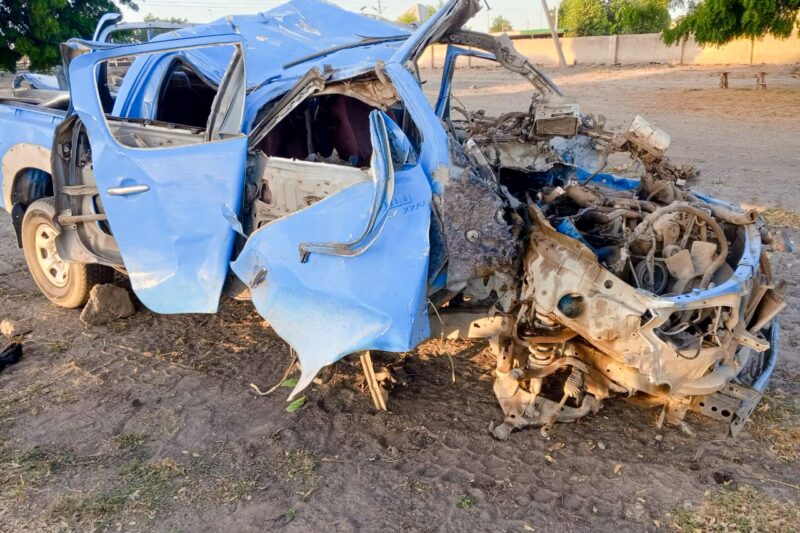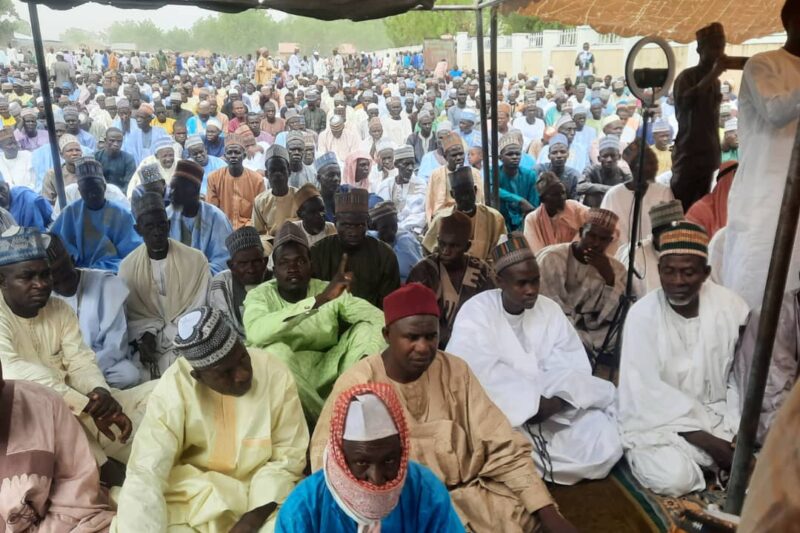More than 200 members of the Islamic State West Africa Province (ISWAP), including five of its commanders, were reportedly killed in a highly coordinated attack by the Nigerian army, air force and ground troops in villages on the fringes of Sabisa Forest, a known stronghold of the insurgents.
The operation, carried out by the air force and troops from the 199 special forces battalion and the 222 battalion, as well as members of Operation Hadin Kai, started on Thursday, September 1 and continued on Friday. It targeted villages – apparently known hideouts – in the Bama Local Government Area of Borno State.
The five ISWAP commanders killed were identified as Abou Hauwa, Amir Shettima, Akura Buri (Nakif), Abou Zainab and Abou Idris.
A Civilian Joint Task Force (CJTF) member in Bama, who asked to remain anonymous for security reasons, told RNI that the local CJTF members and hunters, as well as other security operatives, had worked with the troops in the fight against the ISWAP insurgents.
“The joint operation began on Thursday, September 1 and continued on Friday. The military and other security operatives engaged ISWAP fighters in several villages, including Kanari, Gabchari, Malum Bori, Shotari, Mantari, Fadamari and Gombole, which are close to the Sambisa Forest, where there are many insurgent strongholds.
“The troops succeeded in killing more than 200 ISWAP fighters, including their top five commanders. One ISWAP commander was caught alive by the military during the operation. Not all of the insurgents were gunned down, as many as 70 drowned in a river while trying to escape. Many were killed in airstrikes and witnesses said they saw bodies strewn on the ground.”
The CJTF member said no casualties or injuries were reported on the military side.
“The operation was planned and it was based on intelligence. Most of the residents of the Bama Local Government Area were unaware about the operation because all telecommunication networks were shut down prior to the start of the operation. This was to ensure that residents could not communicate with or inform outsiders about what was about to occur. The first thing most of the residents knew about the operation was when they heard loud and prolonged heavy gunfire and explosions.
“By blocking the communication networks they also stopped informants from sending intelligence to the insurgents about the planned operation.”
He said normally, if the military was going out on patrol or clearance operations they would announce it, informing residents. He believed the lack on access to the communication networks had aided the success of the operation and had led to “such a great victory and feats against the insurgents”.
A resident of Bama, who also asked to remain anonymous, said: “In the past two or three days all we heard was massive gunfire, as well as explosions in the forest. This did not frighten us because we are used to the sounds of gunshots, explosions and artillery fire. This has become normal to us and we are familiar with such sounds in Bama town. If you’re a stranger you will not be able to sleep with your two eyes closed because of the heavy sounds. But if you live here, you get used to the sound and we all stayed very calm before and after the military operation. Everyone carried on doing their normal daily activities. But the blocked communication networks were a challenge as we could not contact friends or family. We learnt only after the operation that the networks were blocked on purpose.”
He commended the efforts of the Nigerian Army and those who collaborated in the operation, saying that residents in the area “really appreciated” the fight against the insurgents.
“When we heard that the soldiers had recorded a resounding victory in the operation, it was good news for all of us.”
In the past three to four years, he said, residents could not go even 1km outside Bama town. “But there has been some improvement and with security we can now go to farm in remote places, such as Goniri, Bararam, Goni Kormi, Kajiya and up to Alagarno. This would have been unheard of a while ago because it would be like walking into a death trap. If you ventured too far from the town it was almost a foregone conclusion that you would be attacked.”
He said that before, Alagarno and Goni Kormi were no-go areas because both the villages were deep in the Sambisa Forest. Some parts of Kuli town and Nguro-soye were also dangerous areas but today people were farming there because of the presence of troops and other security operatives. He said it was dangerous for the people who lived so close to Sambisa Forest, but it was even worse for the security forces who had to be ready for a confrontation at any time.
Just as the security forces relied on informants and intelligence from insiders, so did the insurgents and it was known that some in the villages were informants, he said.
“But we are so pleased to hear that the operation was a success. We pray that one day the military will defeat the insurgents and we will be free to live our lives as we did in the days before the insurgency. At this time that is still a dream. But one day our troops will be victorious. We are sure of that.”
SHETTIMA LAWAN MONGUNO








